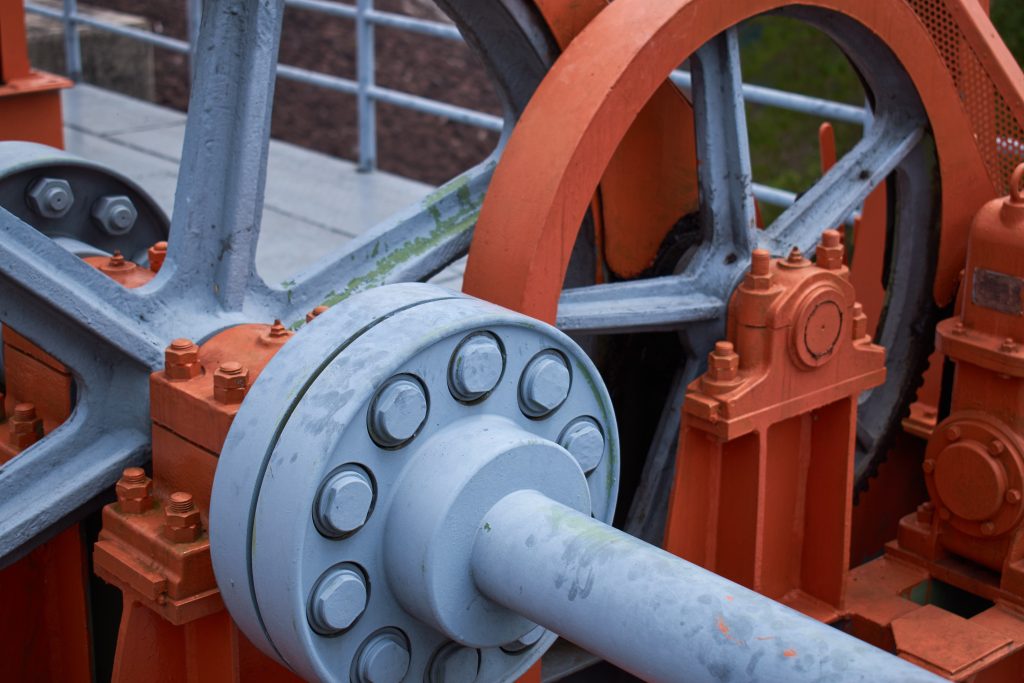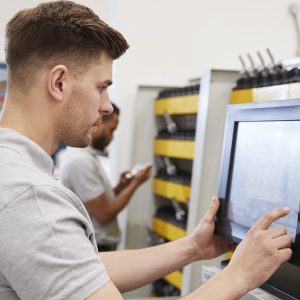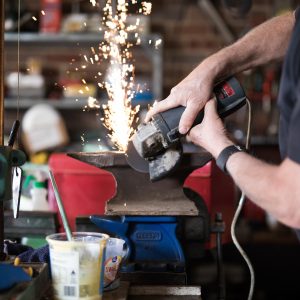Enhanced Mechanical Engineering
Enhanced Mechanical Engineering

Enhanced Mechanical Engineering
BTEC Level 3 Award in Advanced Manufacturing Engineering | Level 2 Certificate in Engineering
With learners progressing into apprenticeships or jobs with Mercedes F1, Jaguar Landover, United Aerospace, Valero, Maritime Cadetships at Warsash Maritime School, accelerated apprenticeship programme with the Royal Navy, St David’s Assemblies, PSM International, Insite Technical, Puma, Consort, Dragon LNG and the Ministry of Defence it is no wonder that this is our most popular courses.
Is this course right for me?
Learners will study two qualifications in one year – a technical award (BTEC Level 3 in Manufacturing Engineering, the vocational equivalent to 1 A-level) and a competence Qualification (Level 2 Certificate in Engineering). There will also be the option to complete a Level 3 Diploma in the second year which is the vocational equivalent to two A-Levels.
Learners will also undertake five weeks of work experience with a mechanical or marine engineering company.
This is coupled with receiving a £200 toolkit to keep for use in the workshops at Pembrokeshire College and in their work placements.
What are the entry requirements?
- Five GCSEs at grade C or above (may include one relevant equivalent) to include English Language/First Language Welsh, Mathematics and Science
- Each application is considered on individual merit
- Entry is subject to attending a course meeting or informal interview
Current student - what are the entry requirements?
- Successful completion of relevant Level 2 programme (including skills) and decision from progression board meeting
- GCSE English Language/First Language Welsh at grade C or above
- GCSE Mathematics at grade C or above
What will I learn?
Over one year, students will study:
- Level 3 Award in Advanced Manufacturing Engineering
- Level 2 Certificate in Engineering
Advanced Manufacturing Engineering
Covering maths for engineers, mechanical science, engineering materials and an insight into environmental engineering and sustainability alongside receiving lectures from renewable engineering companies.
Units to be studied include:
- Health and Safety in the Engineering Workplace – This unit will give learners an understanding of hazards and risks associated with health, safety and welfare in an engineering workplace, the associated legislation and regulations, and of their roles in complying with the related legal obligations. Learners will be required to undertake full risk assessments and to appreciate the significant risks encountered in the workplace and the measures taken to deal with them. They will study the principles of reporting and recording accidents and incidents, again within a legal context.
- Communications for Engineering Technicians – This unit will give a foundation for employment in a wide range of engineering disciplines (for example manufacturing, maintenance, communications technology), in addition to giving a foundation for further study. It aims to develop learners’ ability to communicate using a diverse range of methods. These include visual methods, such as drawing and sketching, and computer-based methods, such as two-dimensional (2D) computer-aided design (CAD) and graphical illustration packages. It will also develop learners’ ability to write and speak in a framework of technology-based activities, using relevant and accurate technical language appropriate to the task and the audience.
- Mathematics for Engineering Technicians – This unit enables learners to build on knowledge gained at GCSE and use it in a more practical context for their chosen discipline. Learning outcome 1 will develop learners’ knowledge and understanding of algebraic methods, from a look at the use of indices in engineering to the use of the algebraic formula for solving quadratic equations. Learning outcome 2 involves the introduction of the radian as another method of angular measurement, the shape of the trigonometric ratios and the use of standard formulae to solve problems involving surface areas and volumes of regular solids. Learning outcome 3 requires learners to represent statistical data in a variety of ways and calculate the mean, median and mode. Finally, learning outcome 4 is intended as a basic introduction to the arithmetic of elementary calculus.
- Computer-aided Drafting in Engineering – This unit will enable learners to produce a variety of CAD drawings, from single-part 2D components to complex 3D models. Advanced techniques, such as using pre-prepared symbols to construct circuit diagrams and assembly drawings, will provide opportunities for learners to develop their skills. Learners will investigate the use of CAD in industry, the hardware and software required and the links with other software packages. In doing this, learners will appreciate the advantages of CAD over more conventional methods of drawing production. Finally, learners will generate 3D models, make comparison with 2D CAD drawings and evaluate the impact of this technology on manufacturing companies and their customers.
- Mechanical Principles of Engineering Systems – Learners are introduced to the behaviour of loaded engineering materials and the analysis of a range of static engineering systems. They will gain an understanding of dynamic systems through the application of Newtonian mechanics. Finally, they will deal with the effects of heat transfer, the expansion and compression of gases and the characteristic behaviour of liquids at rest and in motion.
- Environmental Engineering and Sustainability – In this unit, learners will gain an understanding of environmental engineering and sustainability in their sector and will cover analyses that can be used to reduce the environmental impact of an engineering process, product or system.
Engineering Technologies
This course will immerse you in performing engineering operations such as different types of welding, using lathes and using hand fitting techniques.
Units to be studied include:
- Working in engineering – This unit will encourage learners to find out about working in engineering. It will cover the underpinning basic skills and knowledge needed to function in engineering or manufacturing sectors. It will cover the need to recognise and use safe working practices, consideration of the environment and working effectively as a part of a team. It includes the methods of communication that engineers use in their everyday.
- Principles of engineering technology – This unit is concerned with the basic principles of mathematics and science, along with the materials technology that underpin engineering applications. It covers common applied engineering calculations and materials selection in terms of types, common forms of supply, properties and methods of changing their properties.
- Principles of manufacturing technology – This unit is concerned with the methods of manufacture. It includes the range of functions found in manufacturing organisations and will provide the learner with the knowledge to plan the manufacturing production of routine engineering components by the most economic manufacturing method(s).
- Machine components using turning techniques – This unit covers a broad range of turning activities that are required in the engineering and manufacturing sectors. It covers skills and knowledge needed to produce turned components in different materials, using appropriate tools and equipment, and inspection techniques to achieve the required tolerances and conforming to specifications, whilst complying with health and safety legislation and regulations. This unit is concerned with the underlying process in producing components that require shafts of various lengths and shapes (including boring and reaming).
- Using bench fitting techniques – This unit covers a broad range of fitting activities that are required in the engineering and manufacturing sectors. It covers skills and knowledge needed to produce components for assembly using appropriate tools, different materials and inspection techniques to achieve the required tolerances and conforming to specifications, whilst complying with health and safety legislation and regulations.
- Welding by MIG process – This unit is to enable metal inert gas (MIG) welding skills to be developed to meet the defect acceptance requirements of BS 4872 part 1. The applied knowledge topics include: health and safety hazards and methods of avoiding them, preparation, electrical requirements, consumables, welding techniques, welding positions, distortion control and rectification, BS 4872 part 1 requirements and non-destructive and workshop testing.
You will be required to undertake five weeks of work experience with local engineering companies usually during half term and Easter holidays.
You will also attend regular tutorials.
Will I need to study additional English & Maths skills?
You may need to study an additional skills course depending on:
- the course you are taking at College
- what grades you gained in your GCSE Maths and/or English Language
Below to find out what skills course you may be taking at College.
Workbased, progression pathway programmes within the Built Environment Faculty – you will study Essential Skills Wales (ESW) in Application of Number and Communications.
Jobs Growth Wales (JGW+) programme – will be timetabled into literacy and numeracy sessions. To discuss the opportunity of attending a GCSE resit programme, in addition to their JGW+ timetable, please contact skills@pembrokeshire.ac.uk
Life Skills Academy programmes – you will have opportunities to upskill in English and Maths through Wales Essential Skills Toolkit (WEST) / Century or attending Essential Skills classes.
All other courses and those who have progressed through the internal progression route:
Upskilling Destination Programme – an hour and half session a week developing essential research skills, critical thinking, and academic writing techniques, supporting literacy, numeracy, digital literacy and employability skills
A one year GCSE Resit Programme in GCSE Mathematics Intermediate Tier (Welsh or English medium) / GCSE English Language
A one or two year pre-GCSE upskilling course in required subject/s – The priority of this programme (Foundation Maths for Mathematics pathway) is to build fundamental skill and knowledge, to prepare learners for progression onto the one-year, intermediate tier resit programme.
A one year pre-GCSE upskilling course in mathematics – The priority of this programme is to build fundamental skill and knowledge, to prepare learners for progression to the Foundation Maths programme.
Can I do this course in Welsh?
Learners may have the option to complete course assessment/assignments or elements of the course through the medium of Welsh or bilingually. Visit our Welsh Language in the College page to find out what else is available to you.
How will I be assessed?
- Continuous assessment during the course
- Portfolio of evidence
- Workplace evidence
- Practical examination
- Written examination
- Online examination
- Completion of a final major project
What can I do next?
This course can lead to numerous career opportunities including: Tool Maker, Quality Control Technician, Mechanical Maintenance Engineer, Composites Manufacturer, Production Engineering Improver, Production Engineer, Machinist, Materials Testing Engineer, Designer, CAD Technician, Health and Safety Manager, Project Development Manager, Process Operator.
Following successful completion of this course learners could look to progress to a higher level course at the College, seek an appropriate Apprenticeship or go directly into employment.
Do I need to bring/buy any equipment?
- Stationery - you will be told about any specific items before you start the course
- Technical drawing equipment - you will be told about any specific items before you start the course
- Engineering flame retardant coveralls - £35
- Engineering safety boots - £14/£35
- You may be eligible for funding. Find out more on our student finance page
Any costs above are approximate and may change.
Are there any additional costs?
- No tuition fee
- You will need to pay a £80 engineering workshop fee each year before you start the course
- You can rent a locker for £10 per year this will be refunded if the locker remains undamaged and keys are returned
- You may be eligible for funding. Find out more on our student finance page
Any costs above are approximate and may change.
Additional information
| Level: | |
|---|---|
| Mode: | |
| Duration: |
Sports Academy: While on this course you may be able to join our Sports Academy, if you have a talent for sport, find out what we offer on our Sports Academy page.



